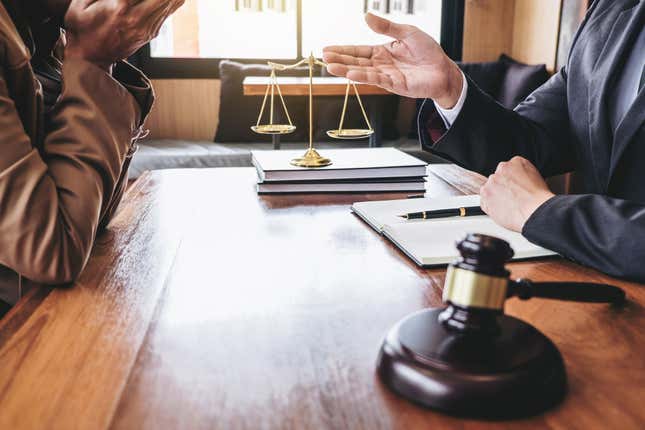
As a former prosecutor and attorney general of California, I saw our legal system at its best when we pursued justice and stood up for victims of murder, rape, and other serious crimes. It made me feel proud. But I also saw the parts of our criminal justice system that were failing—including overworked and underpaid public defenders who meant well, but were physically incapable of providing adequate services to their clients who couldn’t otherwise afford an attorney.
In 1963, the Supreme Court held that states are required to provide counsel to criminal defendants who are unable to pay for an attorney on their own. We all know the common refrain from TV police dramas: “You have the right to an attorney. If you cannot afford an attorney, one will be provided for you.” But that refrain often rings hollow when public defenders are overworked and lack resources.
The consequences of inadequate representation are especially worrying for communities of color, which experience institutional racism within the criminal justice system. A staggering 77 percent of black defendants facing criminal charges in state courts rely on public defenders—when those attorneys aren’t equipped to do their jobs, it’s often our communities that suffer most.
Defendants in criminal cases need lawyers who have enough time, money, and resources to unearth all of the facts in their cases. They need lawyers who can stand up in court, fully prepared to challenge the prosecution.
That is why I recently introduced the EQUAL Defense Act (pdf), which makes a serious investment in our state and local public defense systems by providing the resources that lawyers need to give every client’s case the time and attention it deserves. It will attack these injustices head-on by providing more resources for training, capping attorneys’ workloads, and bringing more people into the profession by making sure public defenders are paid on par with prosecutors.
My plan would provide $250 million to finally close the pay gap between public defenders and prosecutors within five years. The pay gap can be huge in some offices across the country. And between housing, child care, and student loan debt, young public defenders are often unable to cover the cost of living, and leave for more lucrative jobs. A study by Brooklyn Defender Services, for example, found that working public defenders worried whether their jobs were compatible with reaching financial stability and starting a family. That is simply unacceptable. When the salaries of dedicated public defenders do not allow them to cover the cost of living, they cannot do the job that their clients deserve and our Constitution requires.
The bill also establishes new workload limits for public defenders. As a prosecutor, I have seen up close how cash-strapped public defenders’ offices can be and how hard they have to fight for funding and resources. The same fight is being mounted by many other public defenders’ offices across the country, and with good reason: only 21 percent of state-based public defender offices are able to handle their caseloads with attorneys working at recommended levels. In Florida, attorneys handle 500 felony cases a year. In Louisiana, public defenders have almost five times the recommended workload, which led one federal judge to declare that “the state was failing miserably at upholding its obligations under Gideon.”
Funding will also be provided to organizations that specialize in training public defenders. And my proposal would triple the student loan repayment assistance that can be given to prosecutors and public defenders.
When I was a law clerk in the Alameda County District Attorney’s Office, I saw the tremendous power of prosecutors and judges. With the swipe of a pen, these individuals could make decisions about someone’s life and liberty. But in our adversarial system, true justice requires balance. And we cannot secure justice with such an extreme imbalance of resources. If we want to reform the criminal justice system, giving public defenders the support and resources they need is a critical part of the equation.
Kamala D. Harris is a United States senator for California. Elected in 2016, she is the second African-American woman in the history of the United States to serve in the U.S. Senate. In 2011, Harris became the first African-American and first woman to serve as California’s Attorney General. Born in Oakland, Calif., Harris began her career in the Alameda County District Attorney’s Office before becoming the District Attorney of San Francisco.

